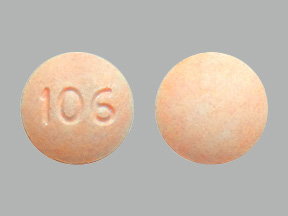Fluoride
Generic name: fluoride [ FLOR-ide ]
Brand names: Altaflor, Fluorabon, Karidium, Luride, Pediaflor Drops,
... show all 21 brands
Dosage forms: oral solution (0.5 mg/mL), oral tablet, chewable (0.25 mg; 0.5 mg; 1 mg)
Drug class: Minerals and electrolytes
What is fluoride?
Fluoride is a substance that strengthens tooth enamel, which helps prevent dental cavities.
Fluoride is used to prevent tooth decay in people whose drinking water contains low levels of fluoride (less than 0.6 parts per million).
Fluoride may also be used for other purposes not listed in this medication guide.
Fluoride side effects
Get emergency medical help if you have signs of an allergic reaction: hives; difficult breathing; swelling of your face, lips, tongue, or throat.
Fluoride may cause serious side effects. Call your doctor at once if you have:
-
very upset stomach;
-
staining, pitting, or any other changes in the appearance of your teeth.
Less serious side effects may be more likely, and you may have none at all.
This is not a complete list of side effects and others may occur. Call your doctor for medical advice about side effects. You may report side effects to FDA at 1-800-FDA-1088.
Related/similar drugs
Warnings
You should not use fluoride if the level of fluoride in your drinking water is greater than 0.6 parts per million (ppm).
Carefully follow all dosing instructions when giving fluoride to a child.
Before taking this medicine
You should not use fluoride if the level of fluoride in your drinking water is greater than 0.6 parts per million (ppm).
To determine the amount of fluoride in your water supply, you may contact your local water company. You may also get information about water fluoride content throughout the United States from the Centers for Disease Control and Prevention (CDC).
Tell your dentist or doctor if:
-
you have ever had sores or ulcers in your mouth; or
-
you are pregnant or breastfeeding.
How should I take fluoride?
Follow all directions on your prescription label and read all medication guides or instruction sheets. Use the medicine exactly as directed.
Fluoride doses are based on your age and on the fluoride content in your water supply. In general, you do not need to take fluoride if the amount of fluoride in your water is greater than 0.6 ppm.
Carefully follow all dosing instructions when giving this medicine to a child.
Measure liquid medicine carefully. Use the dosing syringe provided, or use a medicine dose-measuring device (not a kitchen spoon).
Fluoride liquid (drops) can be taken undiluted, or mixed with liquid or food. Drink or eat this mixture right away. Do not save it for later use.
The chewable tablet may be chewed or dissolved in your mouth before you swallow it. It is best to take this medicine at bedtime after brushing your teeth.
Do not rinse your mouth, and do not eat or drink anything for 30 minutes after taking fluoride.
Take fluoride regularly to get the most benefit.
Store at room temperature away from moisture and heat.
What happens if I miss a dose?
Take the medicine as soon as you can, but skip the missed dose if it is almost time for your next dose. Do not take two doses at one time.
What happens if I overdose?
Seek emergency medical attention or call the Poison Help line at 1-800-222-1222.
Overdose symptoms may include sudden burning in your mouth, tongue pain, nausea, vomiting, stomach cramps, diarrhea, drooling, or vomiting blood.
What should I avoid while taking fluoride?
Avoid eating or drinking dairy products such as milk or yogurt within 1 hour after you take fluoride. Also avoid calcium-fortified juice for 1 hour after taking fluoride.
Ask your doctor before using an antacid or laxative, and use only the type your doctor recommends. The ingredient in some antacids or laxatives can make it harder for your body to absorb fluoride.
What other drugs will affect fluoride?
Some medicines can make fluoride much less effective when taken at the same time. If you take any of the following medicines, take your fluoride dose 1 hour before you take the other medicine:
-
an antacid;
-
a laxative; or
-
a multivitamin or mineral supplement that contains calcium, aluminum, or magnesium.
Other drugs may affect fluoride, including prescription and over-the-counter medicines, vitamins, and herbal products. Tell your doctor about all your current medicines and any medicine you start or stop using.
More about fluoride
- Compare alternatives
- Pricing & coupons
- Reviews (1)
- Drug images
- Side effects
- Drug class: minerals and electrolytes
- En español
Patient resources
- Sodium Fluoride Chewable Tablets patient information
- Sodium Fluoride Tablets
- Sodium Fluoride/Xylitol Chewable Tablets
- Sodium Fluoride Drops
Other brands
Altaflor, Fluor-A-Day, Karidium, Fluorabon, Luride
Professional resources
- Fluoride Tablets prescribing information
- Sodium Fluoride Chewable Tablets (FDA)
- Sodium Fluoride Drops (FDA)
Other brands
Fluor-A-Day, Fluorabon Drops, Flura-Drops
Related treatment guides
Further information
Remember, keep this and all other medicines out of the reach of children, never share your medicines with others, and use this medication only for the indication prescribed.
Always consult your healthcare provider to ensure the information displayed on this page applies to your personal circumstances.
Copyright 1996-2025 Cerner Multum, Inc. Version: 7.03.

